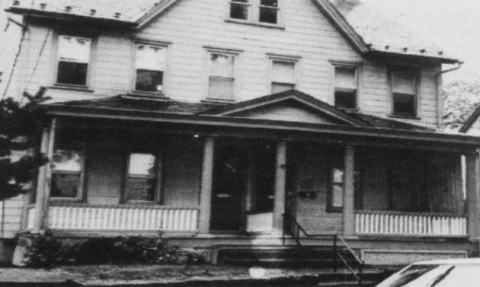
The Hillel Society is a prominent campus-based organization that is committed to social betterment. The national Hillel Society was formed in 1924, and it has fostered deep ties to the global Jewish community since then. The society has historically served as both a source of solace to many confronting anti-Semitism and as a spiritual (and literal) home where Jewish and non-Jewish students and community members can find a place of commonality and mutual respect. The stated mission of the Hillel Society is: “To enrich the lives of Jewish undergraduate and graduate students so that they may enrich the Jewish people and the world.” Since its introduction at Lehigh University in 1947, Hillel has accepted anyone who would like to become involved. Hillel engages Lehigh students in religious, cultural, artistic, and community service activities. Though its popularity has waxed and waned with the economic and cultural conditions of the day, Hillel has maintained its reputation as a conduit for furthering respect and understanding between disparate cultural groups. Hillel’s presence on campus has been constant since its founding, and one aspect of the society’s history that cannot be overlooked is its consistent adaptation to the zeitgeist of the respective eras at Lehigh University in which it has operated. Lehigh University had maintained religious and racial quotas during the first half of the twentieth century. Minutes from a 1929 board of trustees meeting confirm the existence of strict quotas on the number of Jewish students to be admitted (fifty students). In light of the anti-Semitic environment on campus and in the community, Congregation Brith Sholom was established in 1924 at the corner of Packer and Brodhead avenues. Aside from housing Hillel, Congregation Brith Sholom served as a convenient location for North and Southside families to convene and worship together. This building served as a community center and headquarters until the property was purchased by Lehigh University and converted into Mohler Laboratory in 1986. As a result, a vacuum was left for Jewish students who sought a place to congregate. Hillel stepped in to fill that void. The national Hillel had developed aggressive recruiting and fundraising initiatives by the latter half of the twentieth century, and Hillel at Lehigh grew proportionately. The modern era began in 1982 with the purchase and establishment of headquarters and off-campus living space at 216 Summit Street. The building initially served as a place for six undergraduate Hillel members to live, but it subsequently developed into a community center. This independent meeting place off-campus seems to have increased Hillel membership and transformed the organization. In 2008, Hillel at Lehigh hired its first full-time organization director. Seth Goren worked to revitalize Hillel at Lehigh by emphasizing its accessibility, openness and community-driven mission until his departure in late 2013. At the same time, enrollment in Jewish organizations at Lehigh University increased as the number of Jewish students also rose. Jewish students make up roughly 15% of the student body, and there are approximately thirty regular attendees at Hillel events, as of 2014. Of significance is the fact that larger numbers of non-denominational or interfaith students and community members are also able to benefit on a more significant scale as these organizations expand. It’s paramount to consider the effect to which Hillel is beneficial within the broader fabric of Lehigh student-led organizations, rather than just looking at enrollment and attendance figures in isolation. The core focus of Hillel is firmly rooted in sustainable values and practices and offers a positive focus for college students throughout the future, even as the significance and popularity of the Hillel Society continue to fluctuate. The organization has recently experienced reductions in attendance, but it has maintained its identity and core mission throughout its existence at Lehigh. As of this publishing, it remains a welcome presence among a growing variety of other religiously-affiliated social organizations at Lehigh. Significant investment has been made by members across the history of the organization, and though Hillel appears to have been left in the past, if historical precedent is an example of Hillel’s tenacity - it will find a way to persevere.
The Hillel Society is the largest jewish organization in the world.
The Hillel Society is a prominent campus-based organization that is committed to social betterment.
Still Looking for You
Lehigh University
Bethlehem, PA 18015

27 Memorial Drive West, Bethlehem, PA 18015
